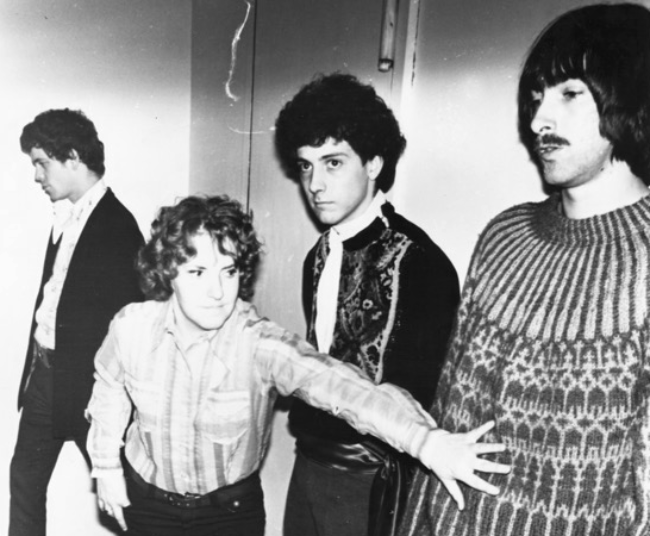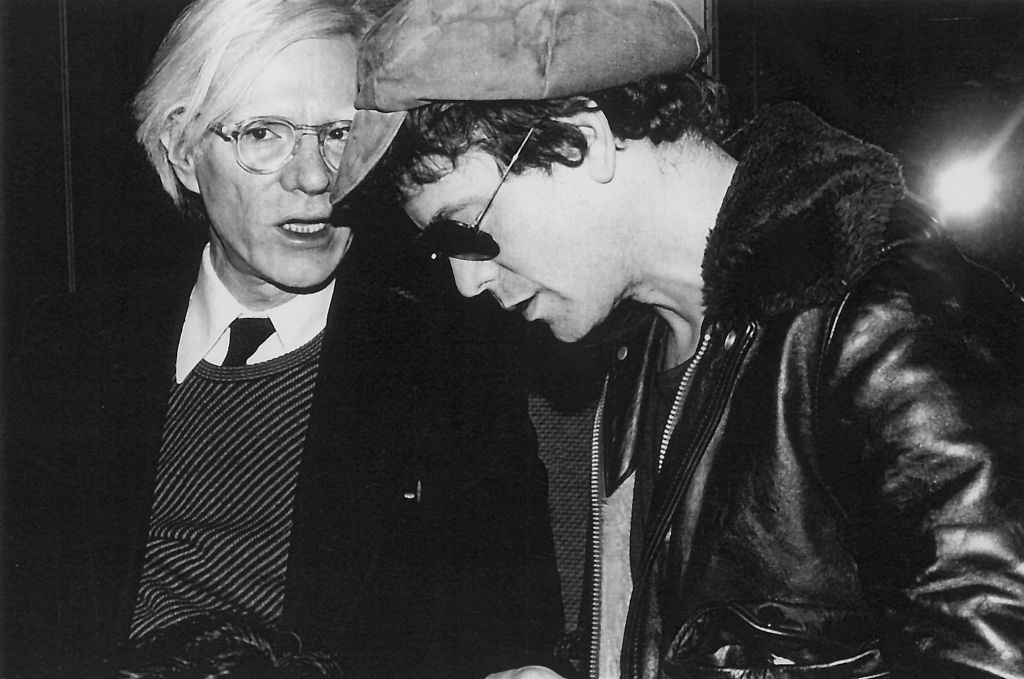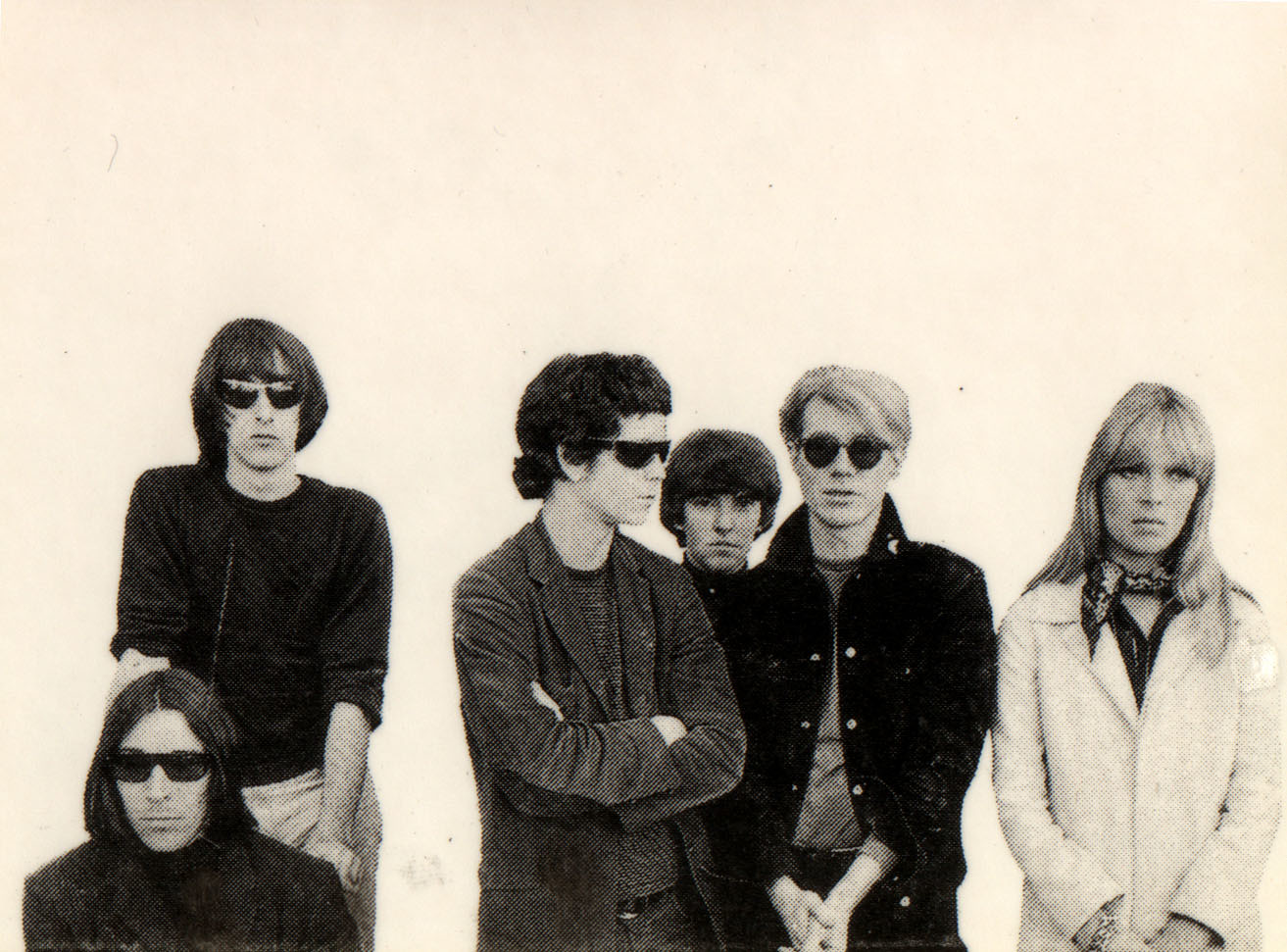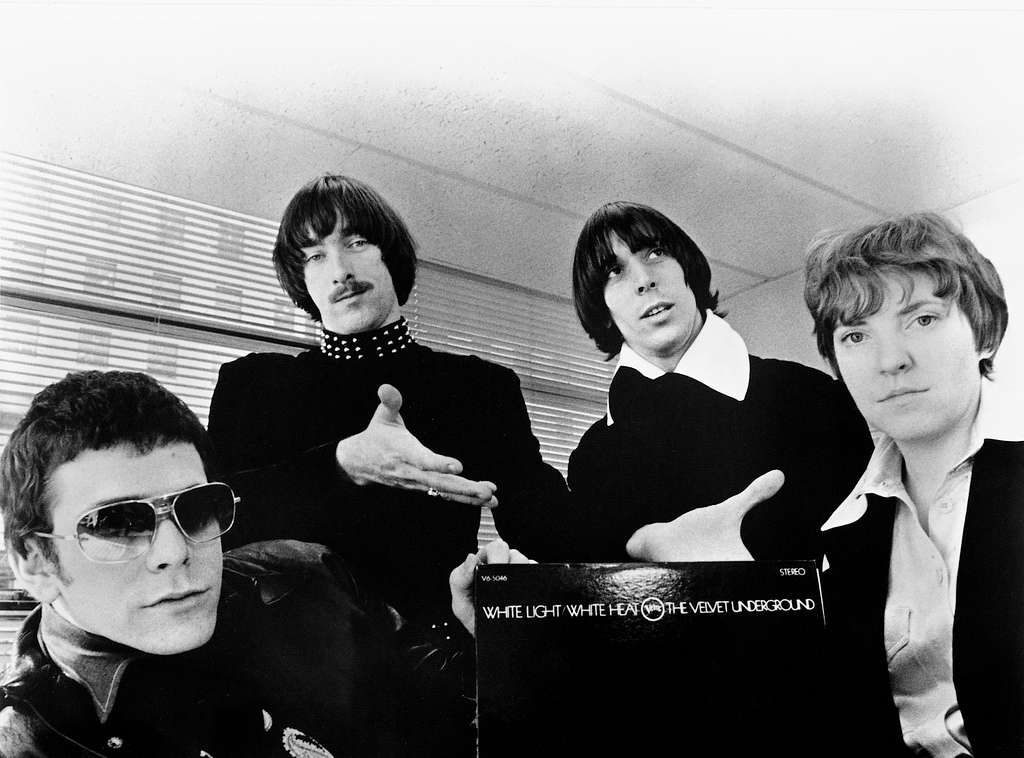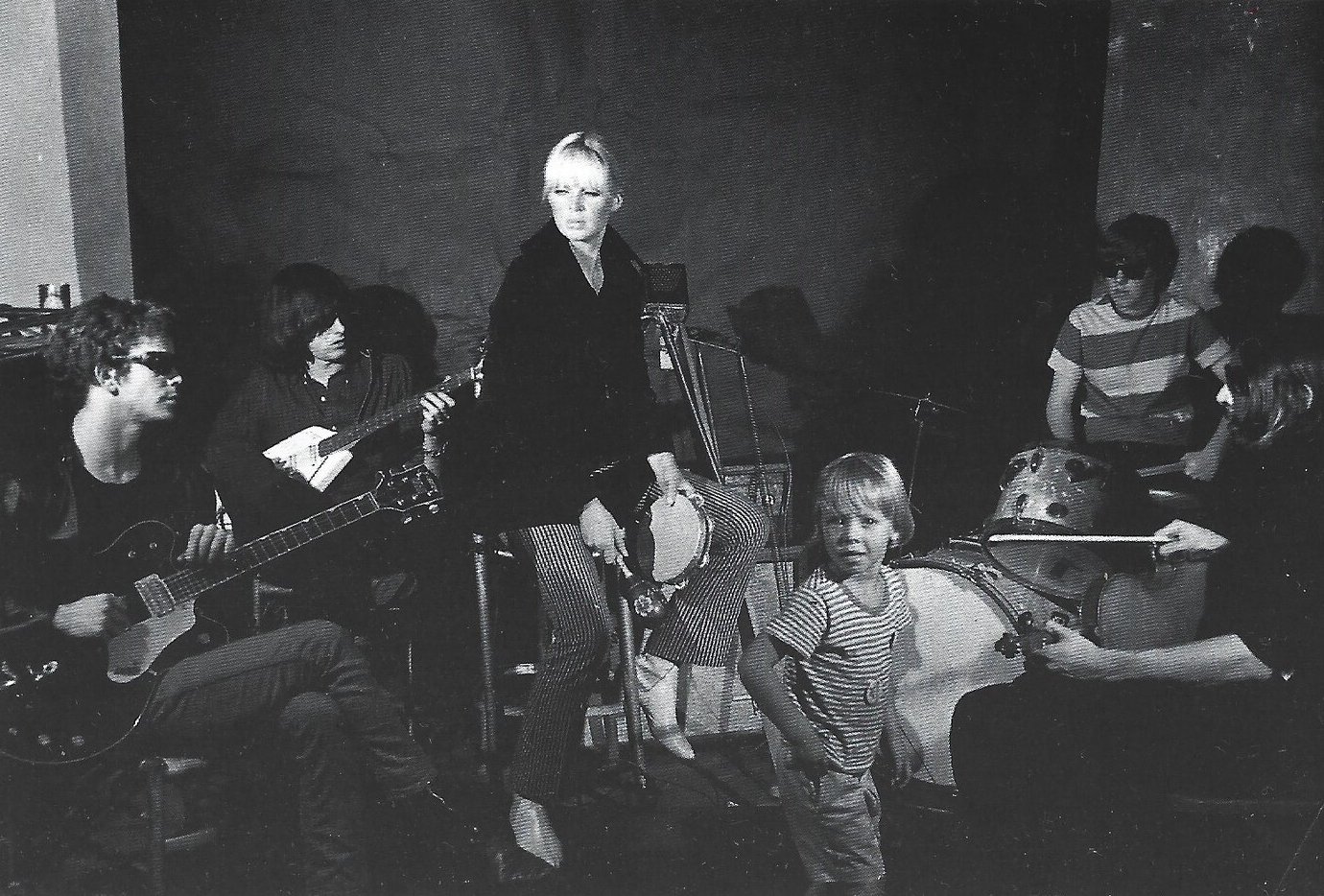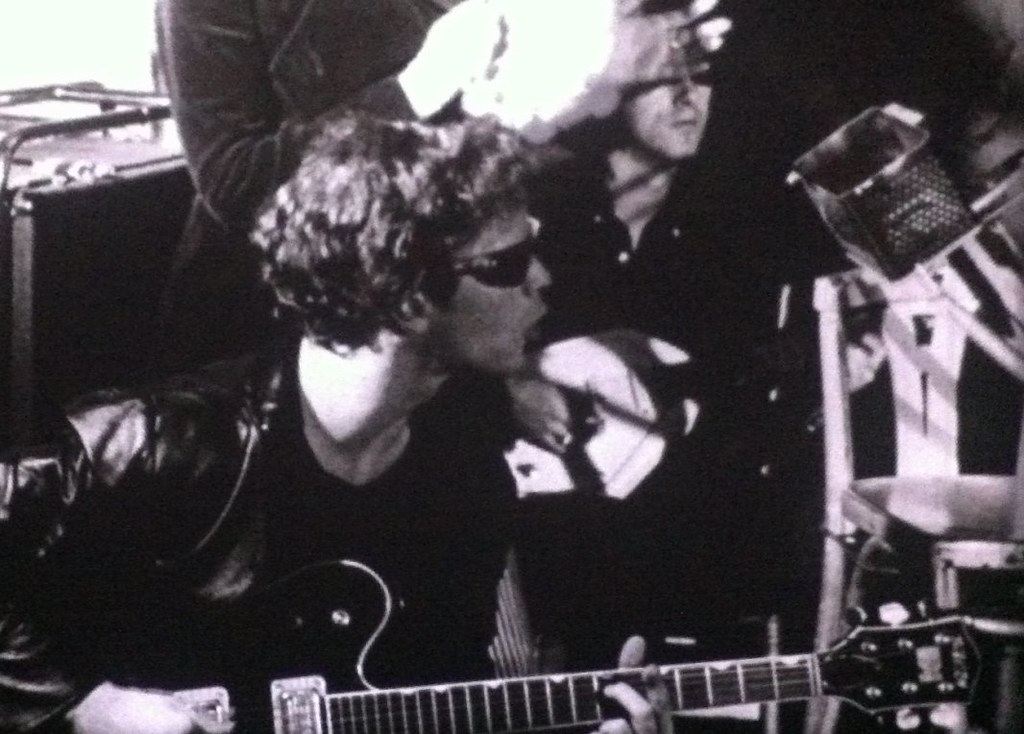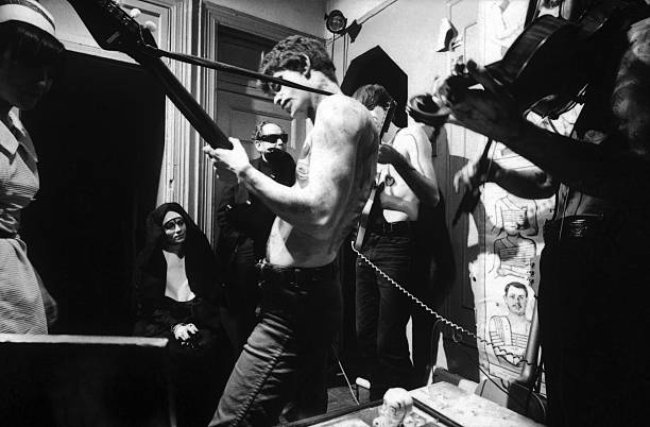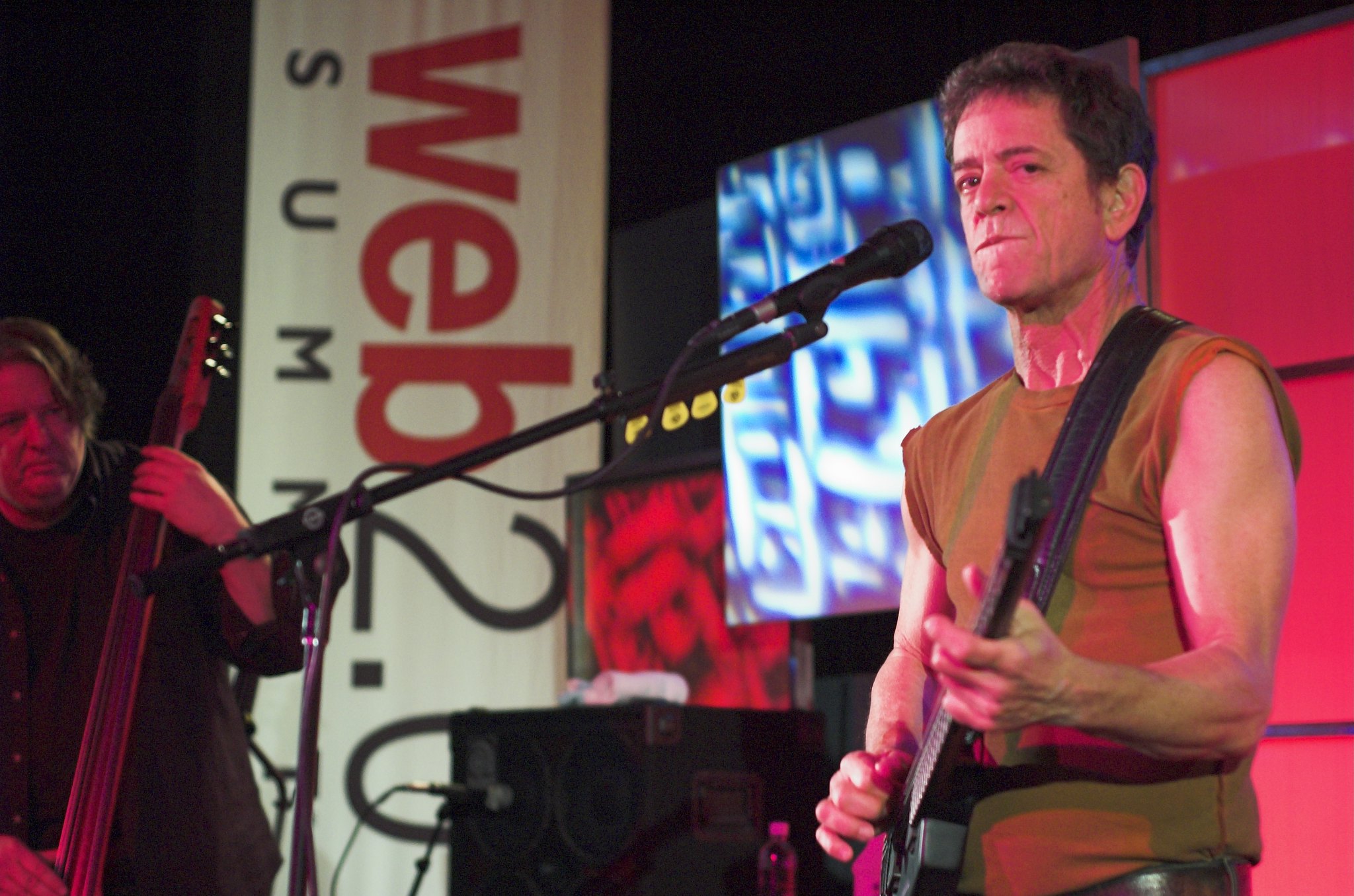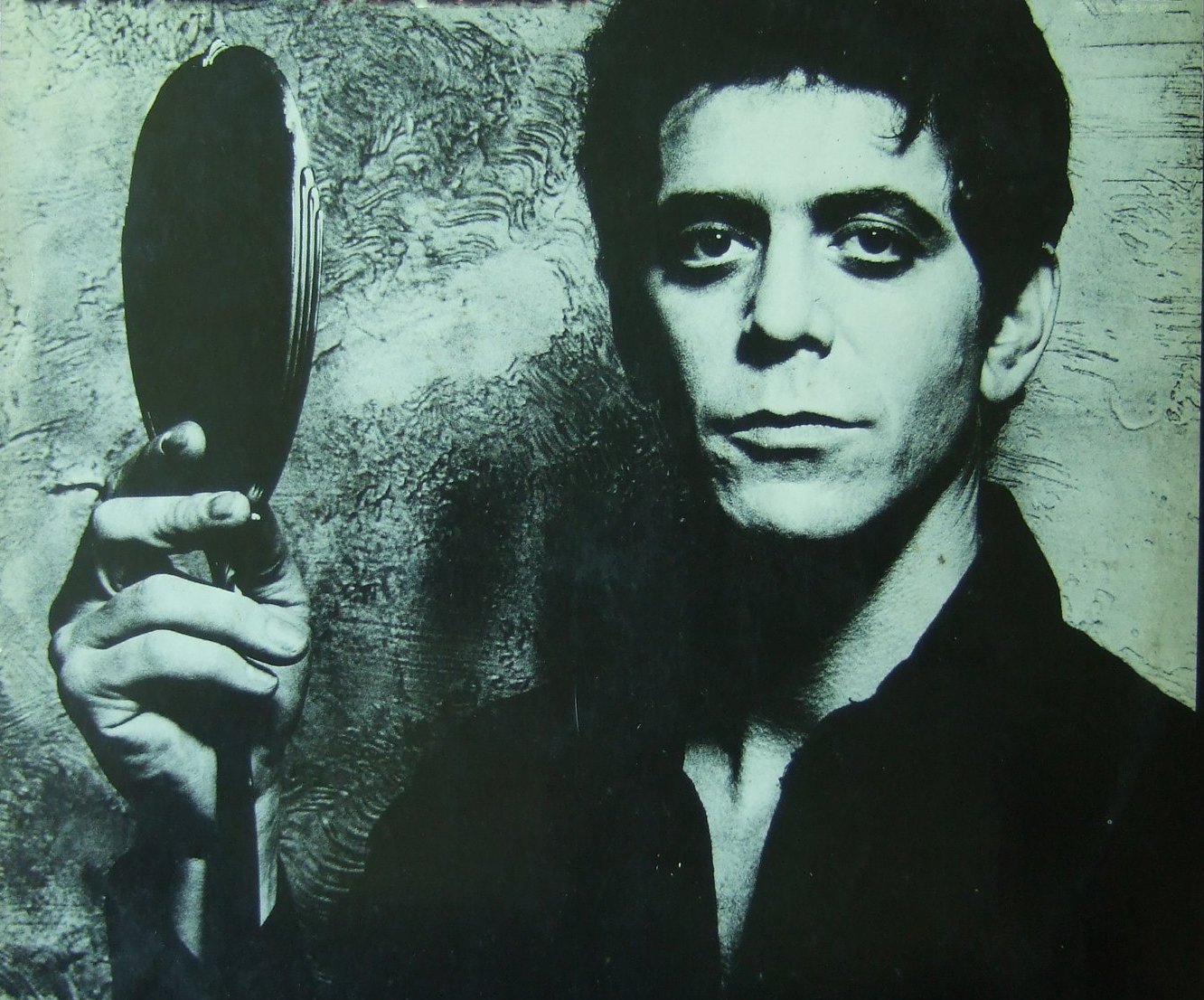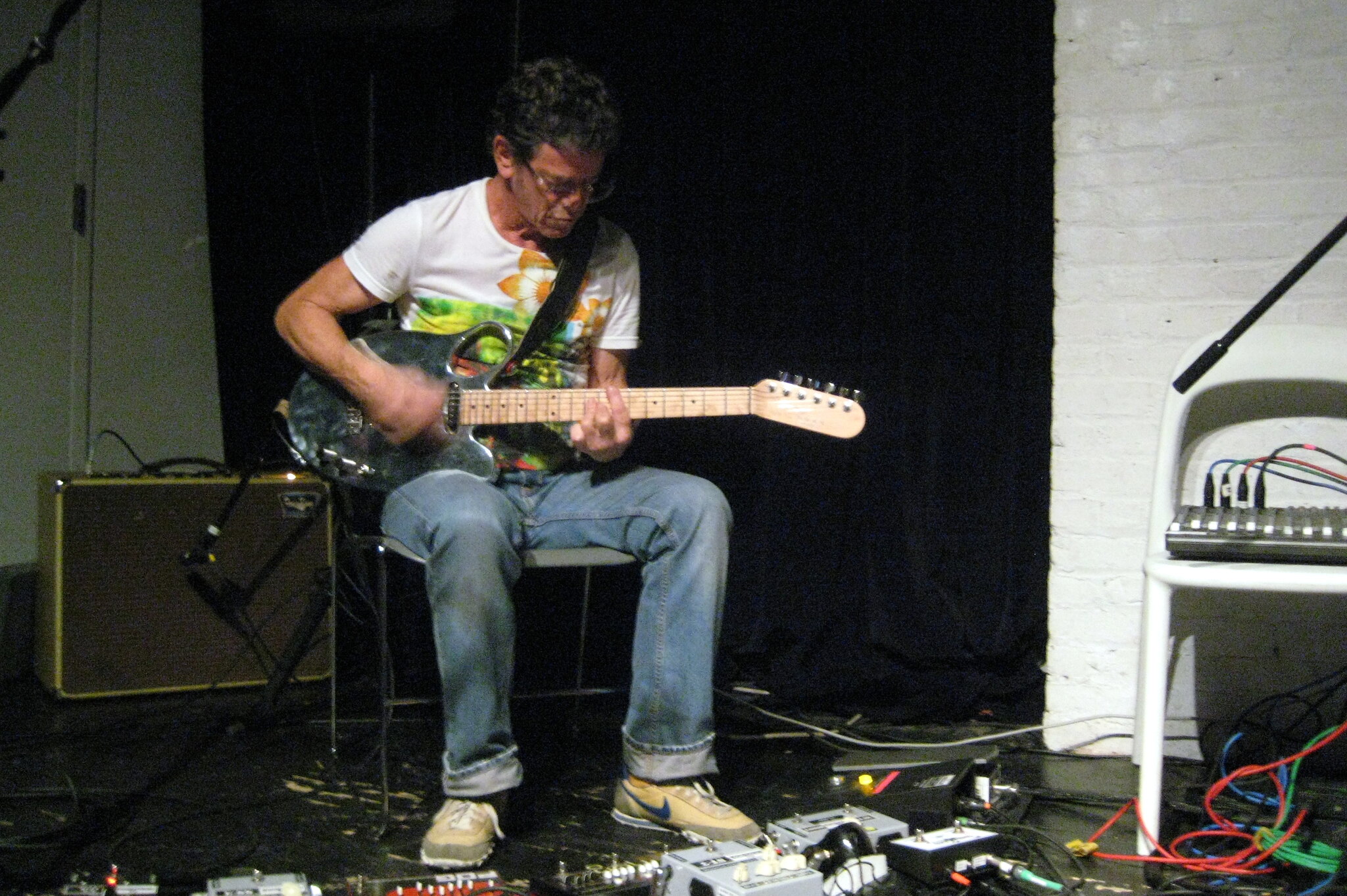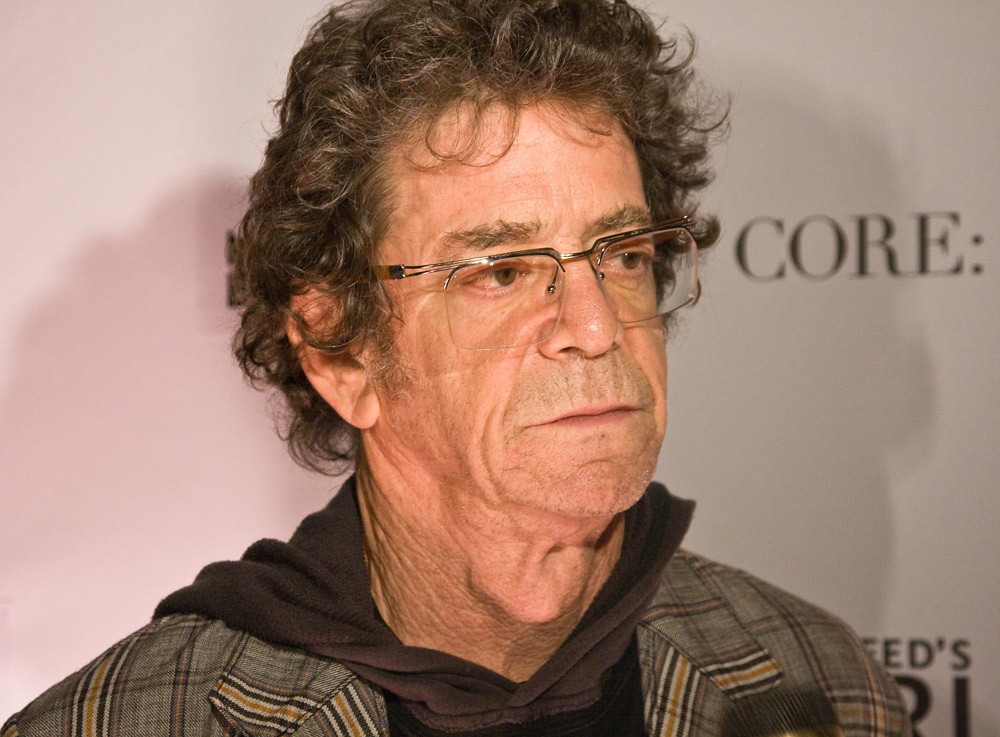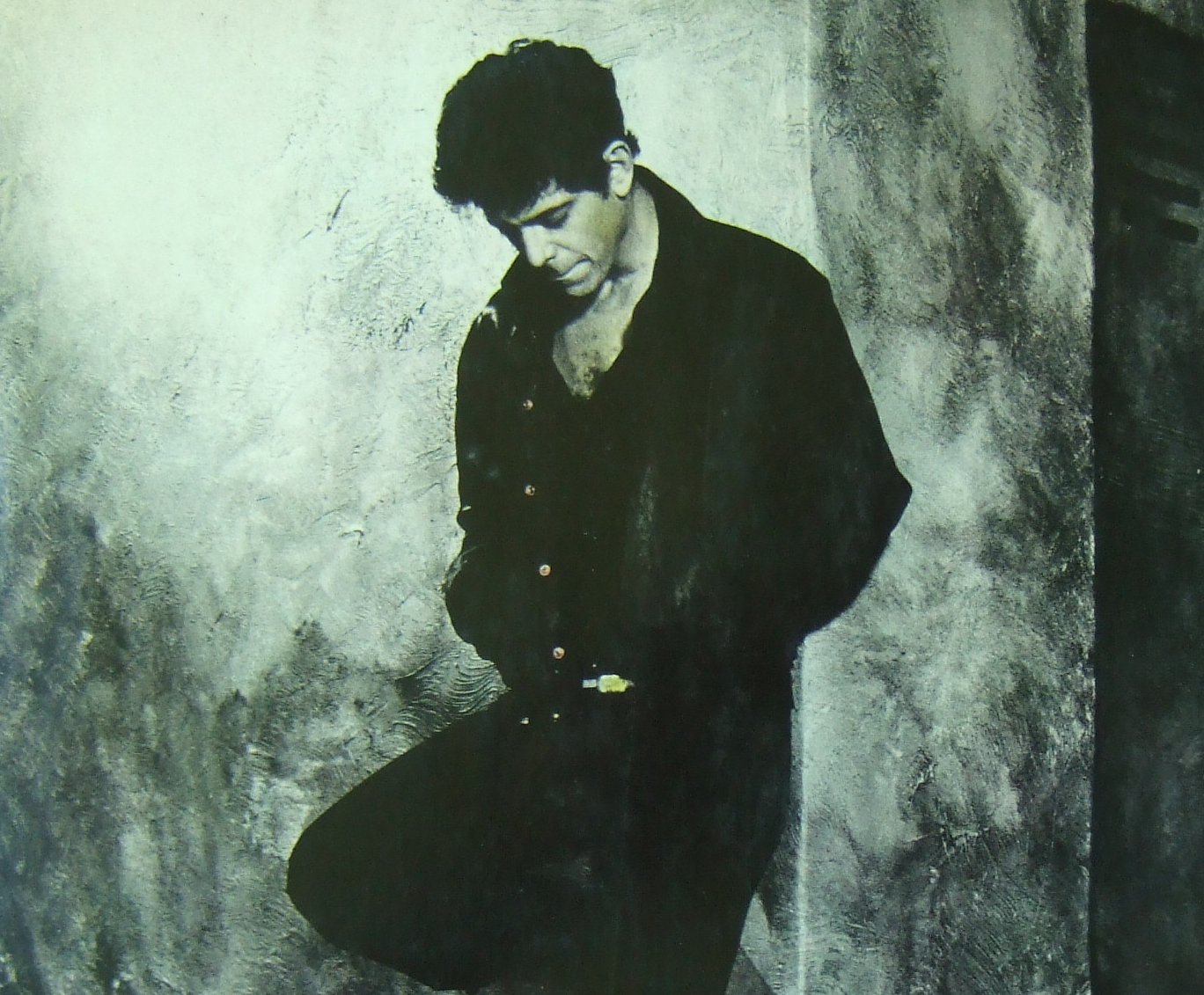Lou Reed is one of the most influential musicians of all time. Known for his transgressive lyrics and experimental songwriting, Reed’s artistic reputation propped up a life of darkness, debauchery, and depression.
1. Tyranny Reigned In His House
Lou Reed was born March 2, 1942, in Brooklyn. He described his home life as living under an overbearing, controlling, “tyrannical” father, Toby. Toby set strict household rules and yelled when his orders were not respected. Lou would disregard his father often—but that’s not all.
By his sister’s account, the younger Reed was just as tyrannical as his father, often acting out and throwing tantrums when he didn’t get his way. It was something of a contrast to his early high school persona.
 Steven Toole, CC BY-SA 3.0, Wikimedia Commons
Steven Toole, CC BY-SA 3.0, Wikimedia Commons
2. He Began In A Different Genre
In a surprising twist, considering his future success in the world of avant-garde music, Lou Reed joined a doo-wop band in high school, later claiming that the wholesome genre was his first musical love. Already a competent musician, Reed recorded a doo-wop song with his band, the Shades, on which he played guitar and sang. He was clearly talented, but there was a tragic side to him even then.
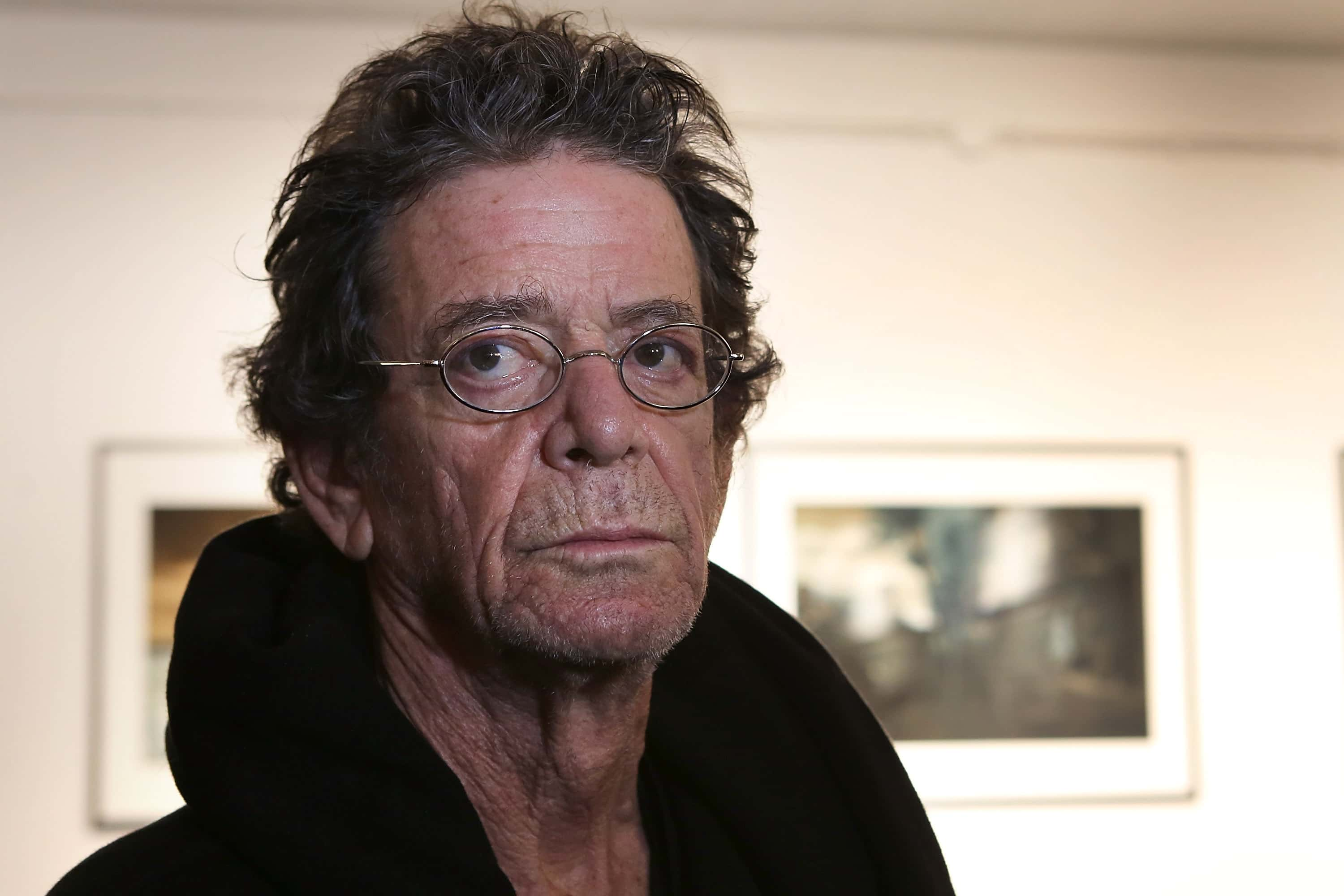 Hannelore Foerster, Getty Images
Hannelore Foerster, Getty Images
3. He Suffered Poor Mental Health
Reed’s sister painted a picture of a difficult teenage life for her brother. According to her, the young Lou suffered from social anxiety, finding it difficult to make friends. He would often withdraw in social situations, spent most of his time locked in his room, and even began suffering from panic attacks. Lou would soon find comfort in all the wrong places.
 Marcelo Costa, CC BY 2.0, Wikimedia Commons
Marcelo Costa, CC BY 2.0, Wikimedia Commons
4. He Adopted A Harmful Coping Mechanism
By age 16, Lou Reed had begun experimenting with illicit substances, a habit that would characterize most of his adult life and persona too. He refused to speak to his parents when they voiced their concern, and the only other place he found solace was in music. But music couldn’t save him from an oncoming crisis.
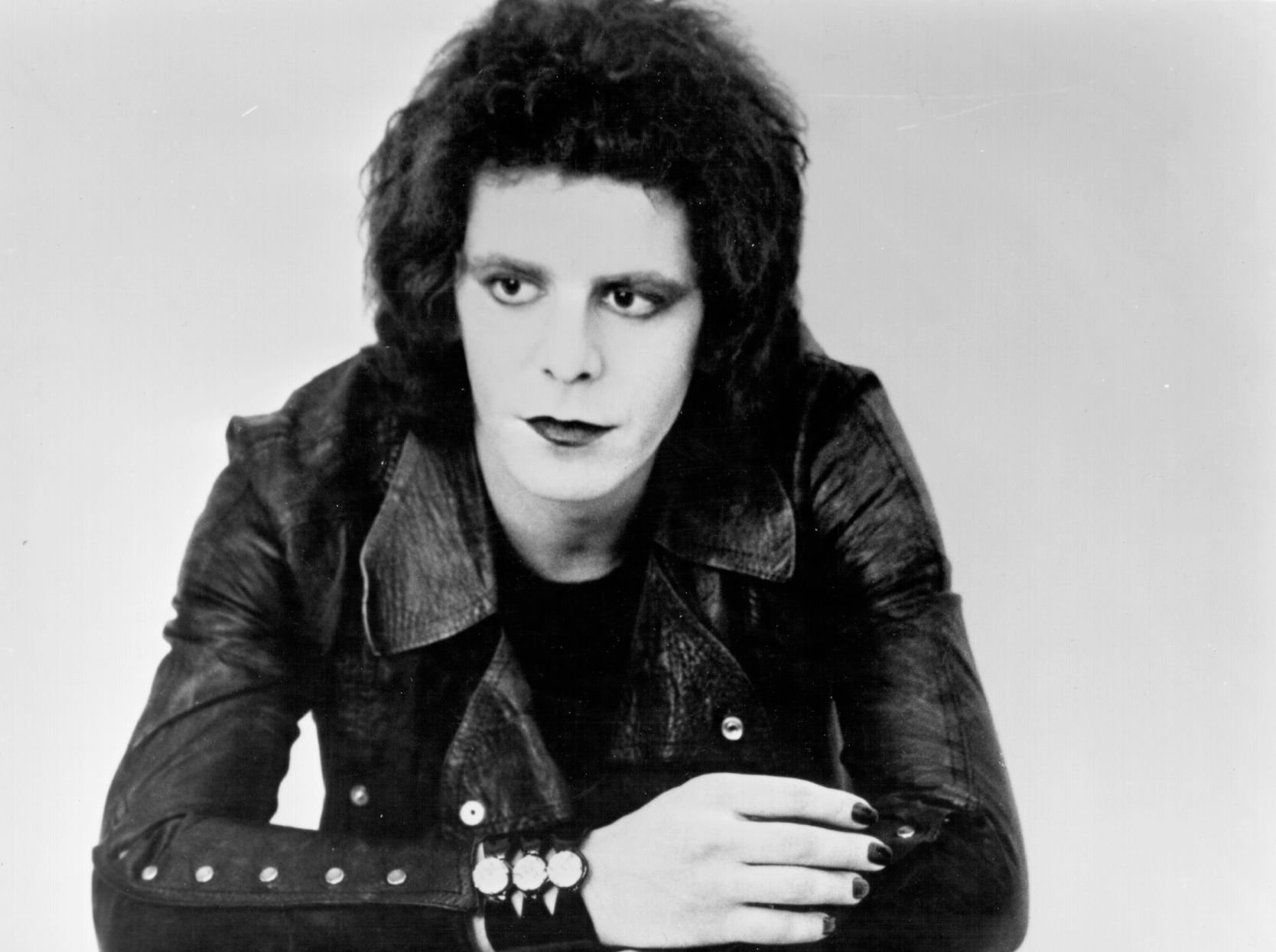 Michael Ochs Archives, Getty Images
Michael Ochs Archives, Getty Images
5. He Lost His Mind
After graduating high school, Lou Reed got into NYU to study poetry. But a short time into his first year, tragedy struck. Reed suffered a mental breakdown. His parents took him home in a catatonic state. Desperate, they sought the help of a psychiatrist who recommended he undergo electroconvulsive therapy—but his parents may have had ulterior motives.
 .dannynorton, CC BY 2.0, Wikimedia Commons
.dannynorton, CC BY 2.0, Wikimedia Commons
6. His Treatment Was Problematic
Lou Reed has claimed that his parents chose electroshock therapy not for his mental health, but instead as way to treat his “homosexual feelings”. His bedroom life has been the topic of some debate, but either way, Lou would resent his parents for subjecting him to the treatment for the rest of his life—especially since it didn’t even help him.
7. His Problems Continued
Possibly at his parents’ insistence to straighten out, Lou Reed joined the Army Reserves next. But Reed quickly grew tired of the obligation, wanting out of the commitment. He decided he would exit in true Lou Reed fashion: He held a (reportedly unloaded) weapon to the head of his commanding officer, resulting in his expulsion from the Reserves. This left Reed with time to pursue his destiny.
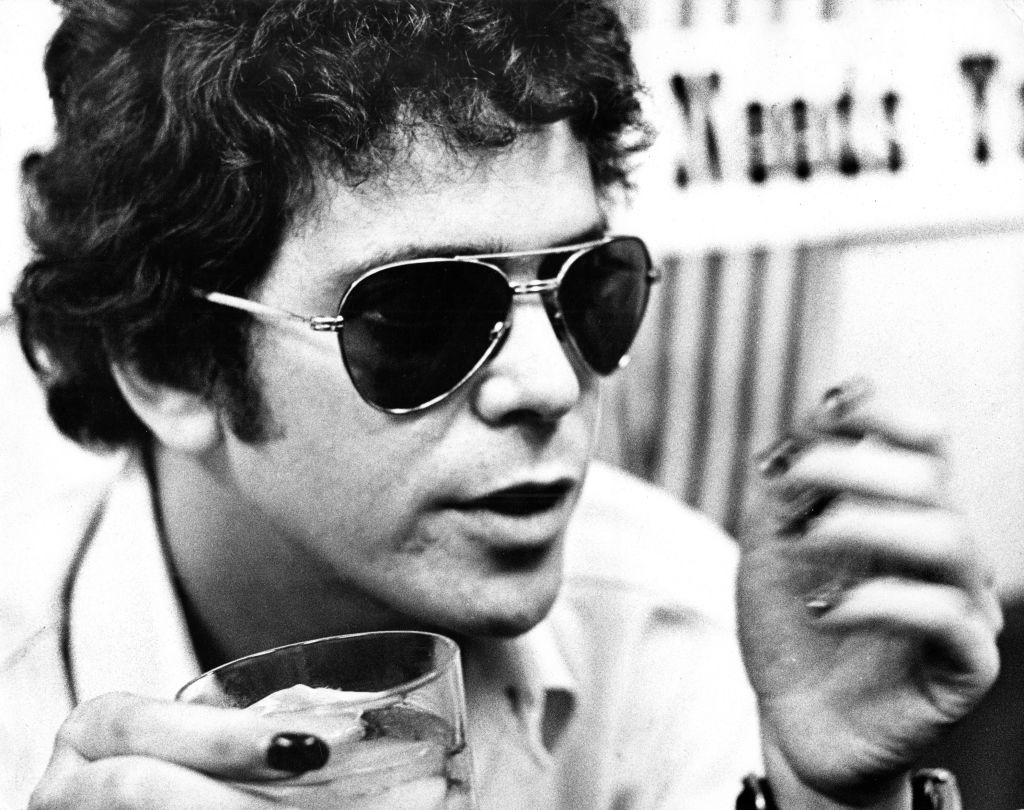 Gijsbert Hanekroot, Getty Images
Gijsbert Hanekroot, Getty Images
8. He Attracted Artistic Royalty
Lou Reed moved to New York in 1964 and began working as an in-house songwriter for a small record label. There, he met a group of session musicians with whom he would form the Velvet Underground. The band quickly gained notoriety in the New York music scene for their challenging sound and energetic live shows. They soon attracted the attention of Andy Warhol, who became their manager. That wasn’t all Warhol did for them.
 Man Alive!, CC BY 2.0, Wikimedia Commons
Man Alive!, CC BY 2.0, Wikimedia Commons
9. He Gained A Collaborator And A Lover
At Warhol’s insistence, the band added a chanteuse to their lineup in the form of German model and singer, Nico. Lou Reed was initially resistant to the idea, but he quickly found Nico to be a fitting collaborator—and then he took their relationship to the next level.
The two began a brief affair, and while it didn’t last long, Reed would find enough time to terrorize the young singer.
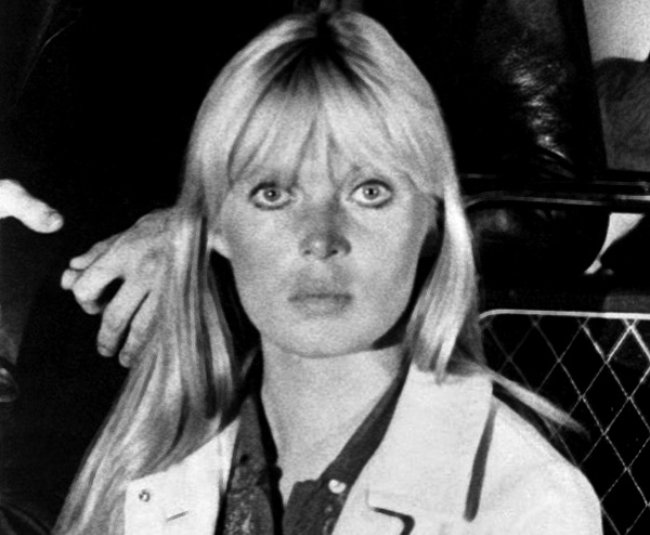 Verve Records, Wikimedia Commons
Verve Records, Wikimedia Commons

History's most fascinating stories and darkest secrets, delivered to your inbox daily.
10. He Was Mean
Reed and Nico’s relationship was largely characterized by his dismissive and often downright abusive behavior towards her, brought on by his opinion that she was superfluous in the Velvets’ lineup. Nico began a residency of shows at a bar in the East Village in 1966.
However, Reed prohibited any of the other members of the band from performing with her. Their conflicts began to wear on Reed’s fellow band members.
11. He Annoyed His Bandmates
Multi-instrumentalist Velvet Underground band member John Cale described Reed and Nico’s affair as “consummated and constipated”. Their squabbles would often disrupt rehearsal sessions and in the studio, Reed would insist that Nico do countless takes of her vocal recordings until she got it right. He was so persistent that she often broke down in tears.
Still, their musical output would reverberate for decades to come.
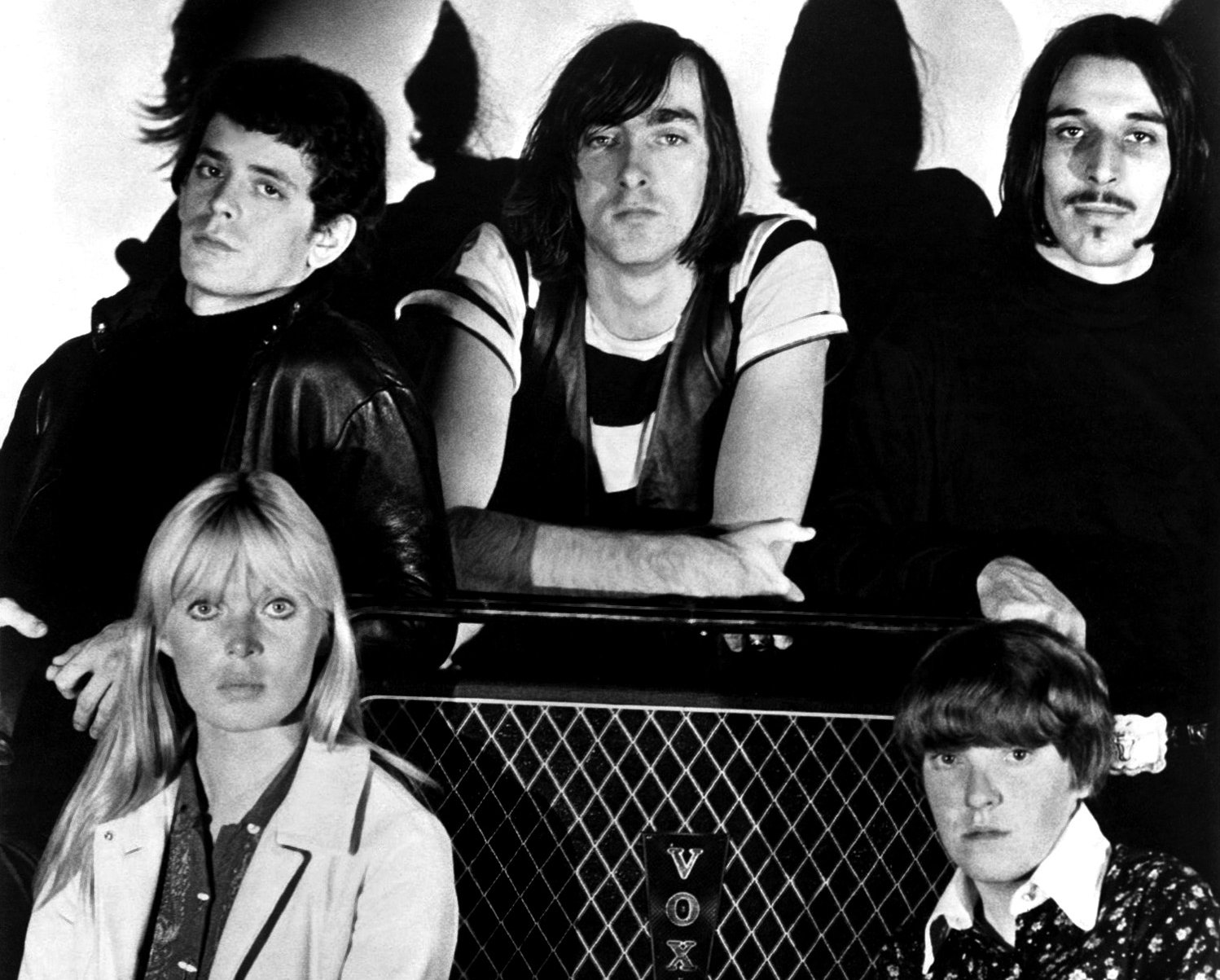 Verve Records, Wikimedia Commons
Verve Records, Wikimedia Commons
12. He Launched A Thousand Bands
The Velvet Underground & Nico, the group’s eponymous debut album, was released in March 1967. Though it made little impact at the time, the album has since gained a reputation as one of the greatest of all time. Renowned producer Brian Eno has hyperbolically stated that, while the album did not sell well upon release, every person that did buy the album started their own band, illustrating the record’s influence.
But before the influence was evident, the band had already begun to implode—and Reed played a major role in their downfall.
13. His Manager Worked Him Like A Dog
Warhol was seen as largely responsible for the Velvet Underground’s success, however limited, and the band appreciated his presence as it got them attention they may have not otherwise received. However, his presence began to grate on the band members too, particularly Reed. The singer recounted one instance where Warhol asked him how many songs he’d written that day. When Reed responded 10, Andy scoffed: “Oh, you’re so lazy. You should have written 15”.
And even after that, he continued to chip away at them.
14. He Fired His Manager
Eventually Reed grew tired of Warhol’s constant meddling—and it culminated in a huge blow-up. During a tense meeting between the two men, Warhol questioned Reed on his vision for the band’s future. As soon as it became apparent to Reed that he and his manager did not share the same vision, he fired Warhol on the spot without consulting any of the other members. Warhol was livid.
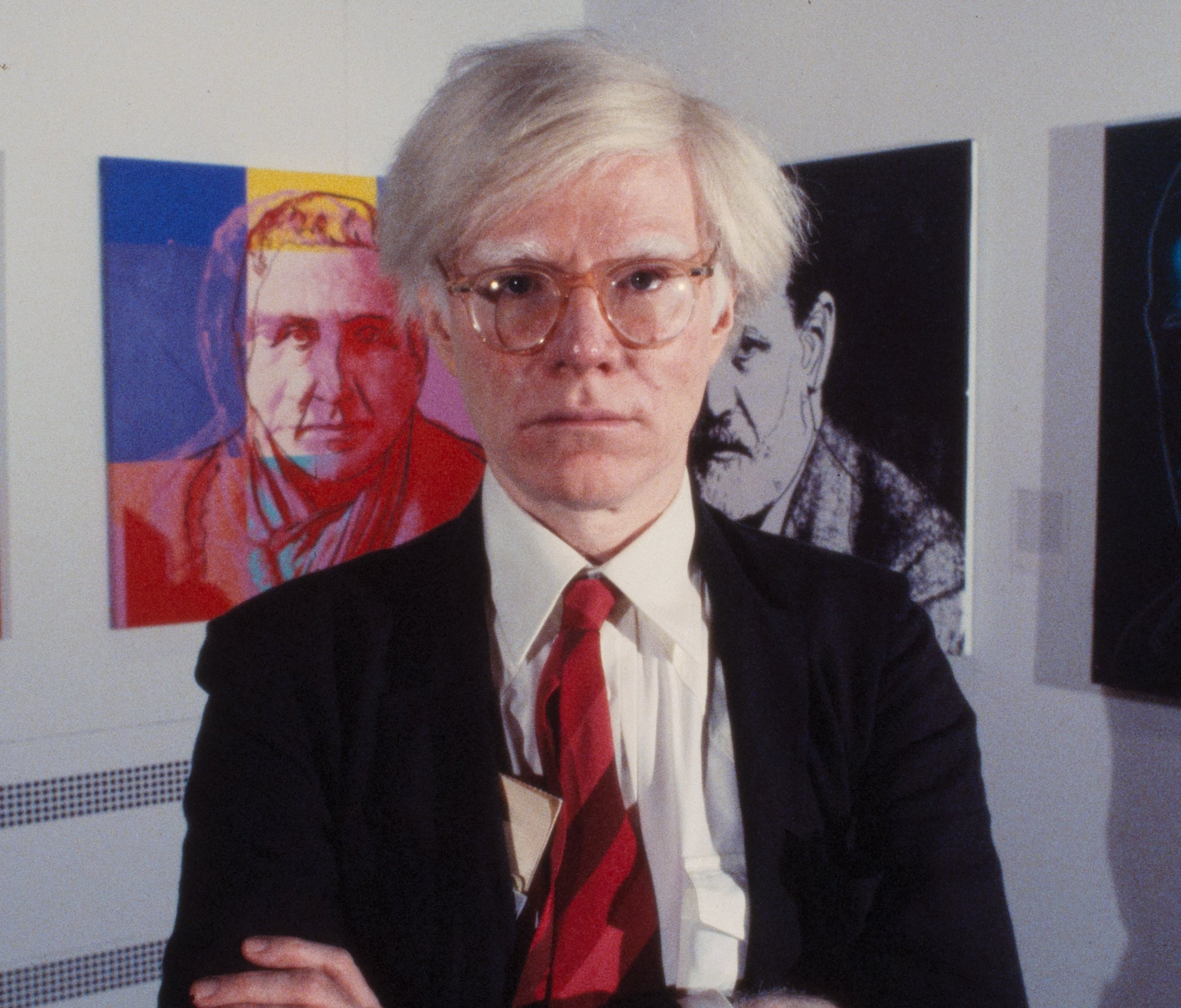 Bernard Gotfryd, Wikimedia Commons
Bernard Gotfryd, Wikimedia Commons
15. His Manager Didn’t Take It Well
Lou Reed recounted how Warhol was immediately furious at his firing. He claims he had never seen Andy angry until that day and did not sugarcoat the story. Warhol allegedly called him a rat which, in Reed’s opinion, was “the worst thing he could think of”. Warhol’s departure was not the last.
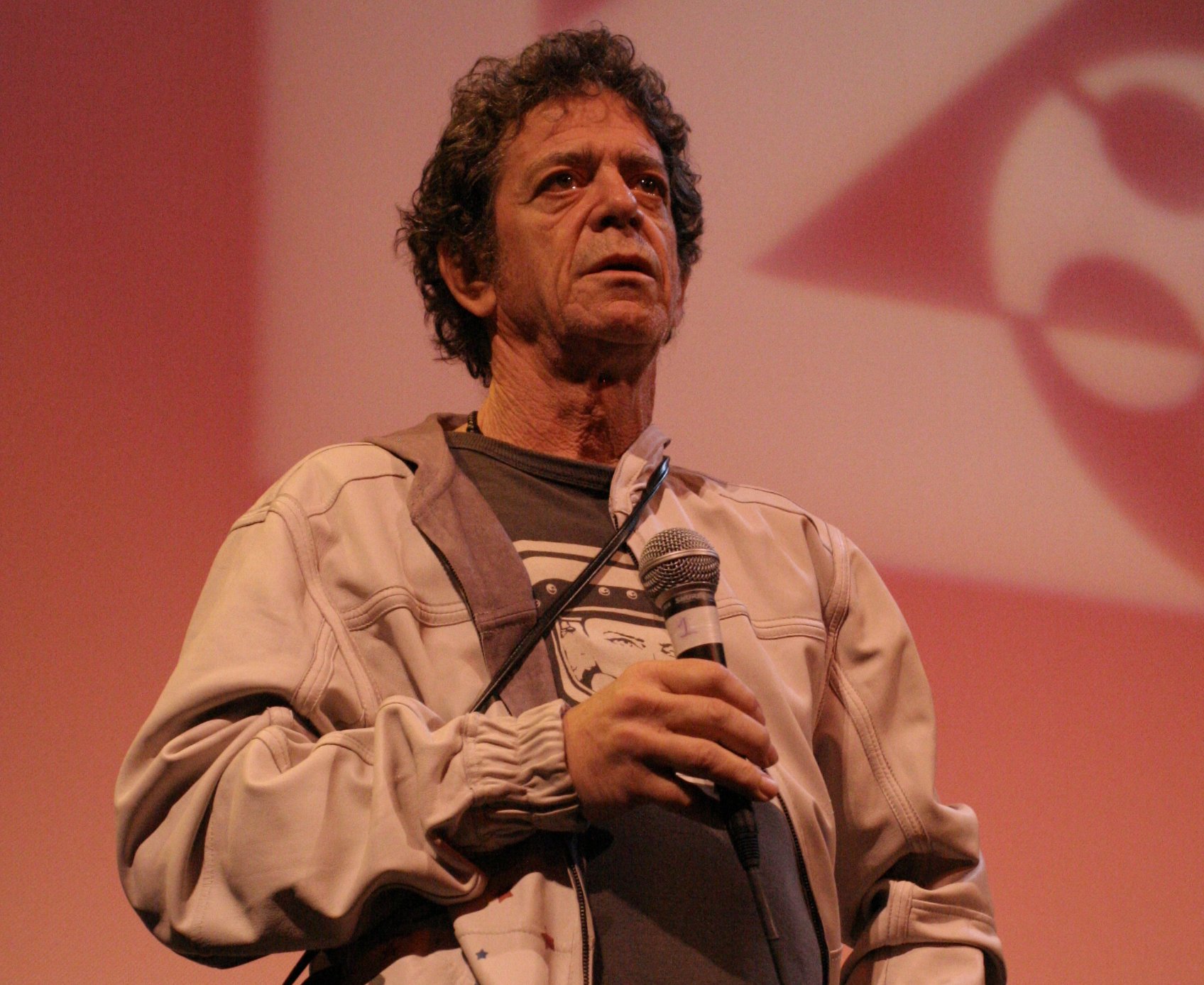 nikolai36, CC BY-SA 2.0, Wikimedia Commons
nikolai36, CC BY-SA 2.0, Wikimedia Commons
16. He Lost More Band Members
Nico began to receive the lion’s share of the attention among the members of the Velvet Underground, and this infuriated Reed. What’s more, he felt like she was encroaching on a project that he saw himself as the rightful leader of—he didn’t even know her name would be on their first album until after it was released.
His petty jealousy had dire effects. It all eventually became too much for Nico and she departed the band. The writing was on the wall for the Velvets.
17. His Band Began To Implode
By the time the Velvet Underground began to record their second album, less than a year after their first came out, the band was in rough shape. John Cale had objected to the departures of both Nico and Warhol, which caused tensions within the band—and with Reed—to sharpen further. Things would only get worse.
18. He Fired Another Bandmate
The Velvets’ second album proved to be a commercial failure too and this brought the internal strife to a breaking point. Lou Reed finally decided he wanted Cale out of the band. His reasons are unknown, though many suspect there was a power struggle within the band between the two men. Reed gave the other members an ultimatum—him or Cale.
The latter got the axe, with Cale alter stating his relationship with Reed was “a nonsexual love affair that ran its course”. The singer may have been the problem all along.
 Rex Huang, CC BY-SA 2.0 Wikimedia Commons
Rex Huang, CC BY-SA 2.0 Wikimedia Commons
19. He Quit His Band
Conflict continued to plague the Velvet Underground throughout the remainder of the 1960s. They released two more albums in 1969 and 1970 with a more pop-friendly sound. Still, Lou Reed ultimately decided to quit the band in 1970, frustrated with their lack of mainstream success and the toll it was taking on his body. His next move was surprising.
20. He Got A Normal Job
In contrast to his rebellious and debaucherous personality (or perhaps because of it, needing a break), Lou Reed moved back to his parents’ Long Island home. There, he got a job as a typist in his father’s accounting firm. But the music biz wasn’t done with him yet. RCA Records approached Reed in 1971 to make a comeback solo album, to which he agreed.
However, much like the Velvets’ first album, his self-titled debut did not make a splash commercially or critically. Lou Reed knew his next move had to be his biggest, and he enlisted help from a rock god.
21. He Linked Up With A Legend
Among his fans at the time, Lou Reed could count then-rising star David Bowie, who bestowed upon Reed the title of “King of New York”. Bowie was a devotee of Reed and did not hesitate to agree when Lou asked him to produce the sophomore Lou Reed solo album. The resulting record, Transformer, was a smash hit.
Its single “Take a Walk on the Wild Side” catapulted Reed finally into mainstream and critical acclaim. His relationship with Bowie would take the opposite trajectory.
22. He Had A Violent Falling Out
Reed’s relationship with Bowie would soon end after a late-night meeting where Reed, likely not completely sober, got into an argument with Bowie. That’s when things took a disturbing turn. Reed ended up hitting him. Bowie allegedly told Reed that if they wanted to work together again, Reed would have to “clean up his act”.
The two would later reconcile before Bowie’s 50th birthday, but his behavior at the time of their falling out was typical for Reed.
23. He Would Walk On The Wild Side
Lou Reed gained a reputation in the 1970s for associating with people considered “undesirable” by polite society. He delighted in exposing his more sheltered acquaintances to this seedy underbelly. He once brought record executive Clive Davis for an after dark “walk on the wild side” through New York’s infamous Meatpacking District, which at the time was rife with addicts, call girls, and criminals.
Davis was horrified, but Reed’s lifestyle was much more in line with these denizens.
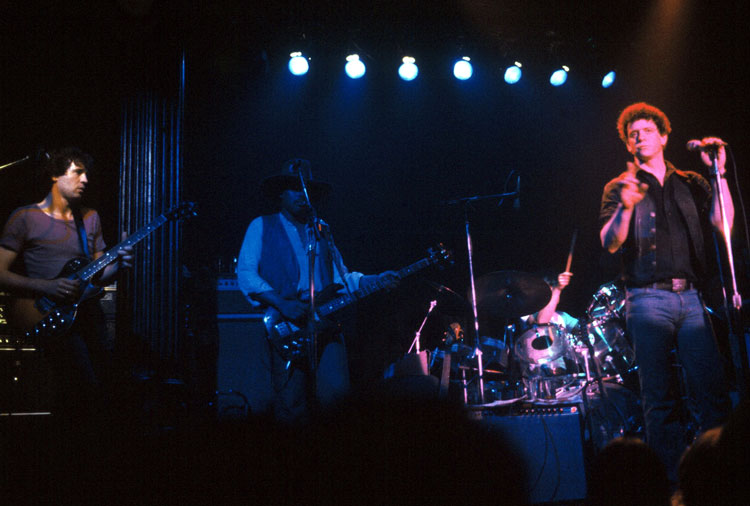 Deeperknowledge22, CC BY-SA 3.0, Wikimedia Commons
Deeperknowledge22, CC BY-SA 3.0, Wikimedia Commons
24. He Got Married
In the midst of these struggles, Lou Reed inadvisably fell in love. He married Bettye Kronstad in 1973 after meeting her when she was a 19-year-old student in 1968. Kronstad was hesitant about Reed at first, but eventually fell for the singer. She was a firm believer in his talent and potential—but that wasn’t enough to overtake Reed’s dark side.
Reed hadn’t changed, and her accounts of their marriage paint a horrific picture of substance abuse-fueled conflict.
25. He Was Sometimes Violent
Kronstad recounted many tales of distress at the hands of Reed. She claims that on a US tour, his substance issues made him violent and that, the second time he hit her, he gave her a black eye. Kronstad did not take this lying down, however. She boldly claimed that after this beating, “I gave him a black eye, too, and that stopped him from using his fists”.
But even though she could handle herself, the stress of their marriage became too much to handle.
 annulla, CC BY-SA 2.0, Wikimedia Commons
annulla, CC BY-SA 2.0, Wikimedia Commons
26. His Wife Fled The Country
The situation in Reed and Kronstad’s marriage became increasingly desperate. It reached a tipping point when Kronstad flew to Santo Domingo in the Dominican Republic to avail of a law there that allowed a 24-hour divorce. Such divorces are legally murky in the United States, but Kronstad was at her wit’s end. It was a wakeup call for Reed.
27. He Begged Her To Come Back
Despite his vices, Lou Reed was a man who invested heavily in his romantic relationships. Devastated by his wife’s departure, he nonetheless agreed to move out of their apartment to give Kronstad space. One night, she received a surprising phone call. It was Reed, who wanted her to join him at one of their favorite restaurants in New York, where Reed’s demeanor had completely changed.
He informed Kronstad that he had given up all vices, then pleaded with her to take him back. The two decided to give it another go. But old habits die hard.
 Marcelo Costa, CC BY 2.0, Wikimedia Commons
Marcelo Costa, CC BY 2.0, Wikimedia Commons
28. His Destruction Only Got Worse
Not long after moving back in together, Lou Reed fell to his temptations once again and they took on more concerning proportions. Kronstad recounted how one morning she arrived downstairs at 8:30 am to find Reed inebriated out of his mind, having consumed a full bottle of Johnnie Walker Red. This was especially worrying as, previously, Reed had usually only started drinking in the afternoon.
There may have been a reason he chose to start a little earlier on this particular morning.
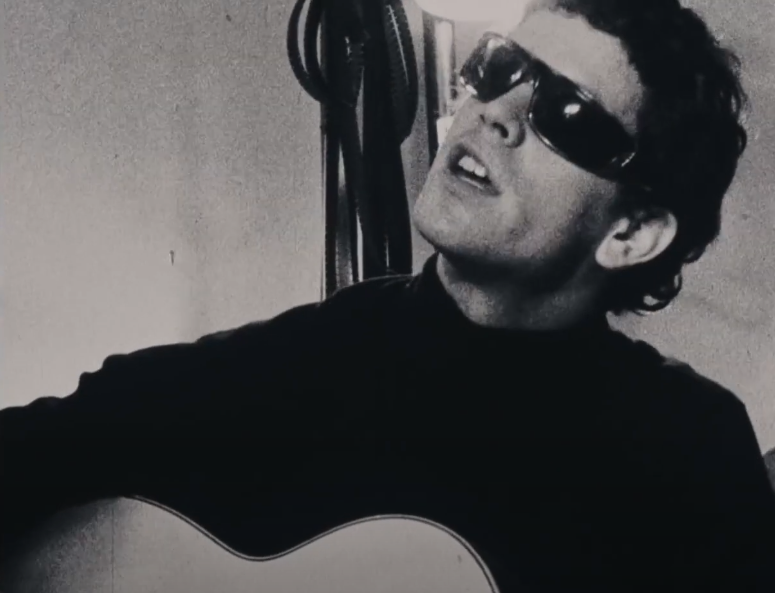 Motto Pictures, The Velvet Underground (2021)
Motto Pictures, The Velvet Underground (2021)
29. He Played A Devastating Set
Reed had been writing songs for his third solo effort, an album he would title Berlin. The album told the story of a fictional married couple whose relationship was disintegrating. In the lyrics, Reed drew heavily on troubles facing his and Kronstad’s marriage. The morning she found him wasted, Reed had completed the album and insisted on playing it in full for her.
Kronstad immediately recognized all their dirty laundry and was horrified that it would soon be publicly aired. Then, Reed added insult to injury.
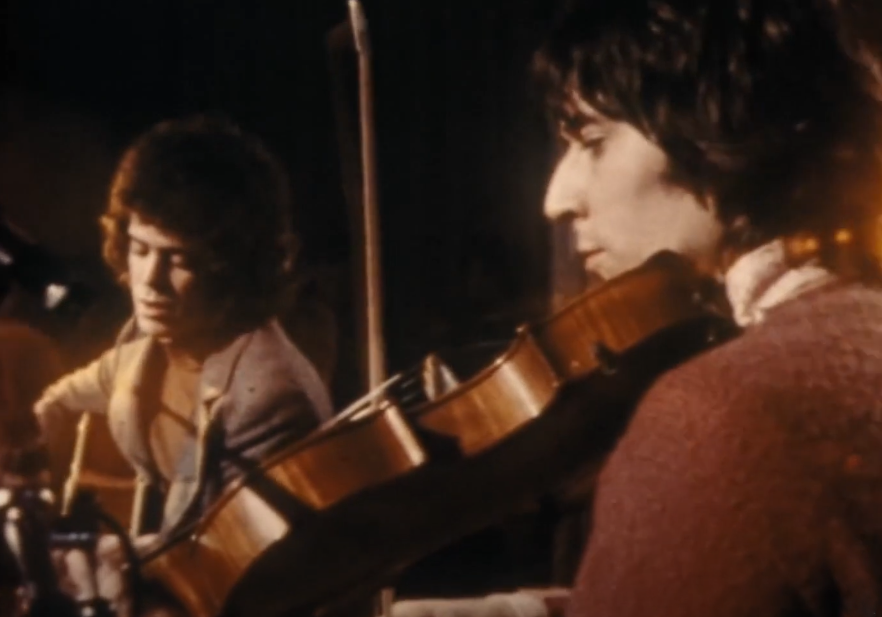 Motto Pictures, The Velvet Underground (2021)
Motto Pictures, The Velvet Underground (2021)
30. He Insulted His Mother-In-Law
In a song entitled “The Kids”, Reed described a mother who struggled with addiction that forced her to sell her body and give up her children. When Kronstad listened to it, she was horrified. It became clear to her that Reed had adapted these lyrics from her own late mother’s story, as she had faced similar struggles.
The insulting way in which Reed spoke of this character in his lyrics devastated his wife. She was not the only woman that Reed took lyrical liberties with, however.
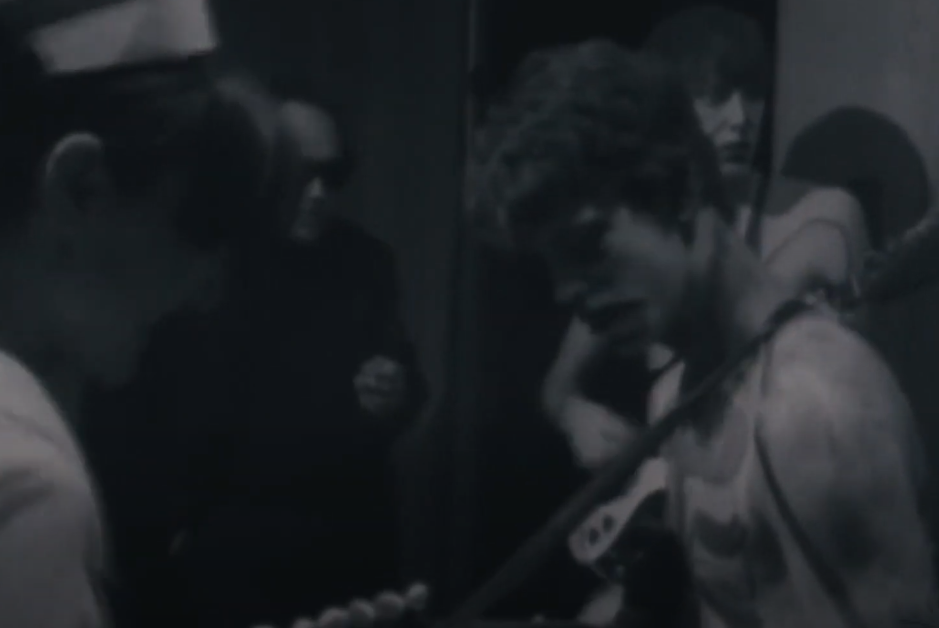 Motto Pictures, The Velvet Underground (2021)
Motto Pictures, The Velvet Underground (2021)
31. He Wrote An Album About Every Woman He Knew
Lou Reed did not focus solely on his marriage when composing the lyrics to Berlin. Rather, the album and its female characters represented a combination of all the women Reed had ever had a close relationship with, including Nico. Kronstad later agreed with this interpretation of the album.
The songs were all tragedy, but the album contained an irony too.
32. He Alluded To An Idea
Lou Reed based the title of his most personal album to date on the German capital. Was it because he felt a personal connection to Berlin? Nope. In fact, at the time of the album’s release, Reed had never actually been to Berlin. He later explained “I love the idea of a divided city” (Berlin was still split between East and West Germany) and chose the title as a metaphorical representation of a divided marriage.
It was a tough album to make, and an even tougher one to release.
33. His Opus Got Rejected
Berlin was released in July 1973 and, like a significant number of Reed’s releases, was initially rejected by the music press. Rolling Stone called it “a disaster” and criticized its degenerate lyrical content, even going so far as to declare Lou Reed’s career over. Reed grew deeply disheartened at the album’s poor reception, having poured so much of his soul into its composition. He decided to clap back at the press.
34. He Defended His Art
Lou Reed spoke publicly about Berlin, rejecting opinions in the press that the taboo subjects covered in the lyrics were inappropriate. He defended his writing as being about real life, in all its sordid glory. He dismissed critics who morally objected to the record, stating “The guy in Berlin beats up his girlfriend. Is that a guide to what you can do? […] I don’t think so. They should sticker my albums and say, ‘Stay away if you have no moral compass’”. Nonetheless, the record had taken a toll on Reed.
35. His Own Album Broke Him
Despite his bold defense of the album, the writing of and poor reception to Berlin had a brutal effect on Reed. Shortly after its release, he no longer wanted to listen to it and refused to discuss it. A friend claimed that when he did listen to it, he would tear up. Reed himself stated that in writing the album, he had gone as deep as he wanted to go for his own mental health.
But in familiar Lou Reed fashion, the album has since become renowned as one of the greatest of all Reed’s works. He could have used that praise at the time.
36. He Got Kicked Off A Tour
Reed’s negative experience with the writing and release of Berlin only served to send him further into substance issues, and he began to use more heavily than ever. This came to a head in the summer of 1975 when Reed was headlining a touring festival in Europe. His struggles made him unreliable and he would often not show for sets.
The organizers had enough and kicked him off the tour—but Reed wasn’t done alienating people yet.
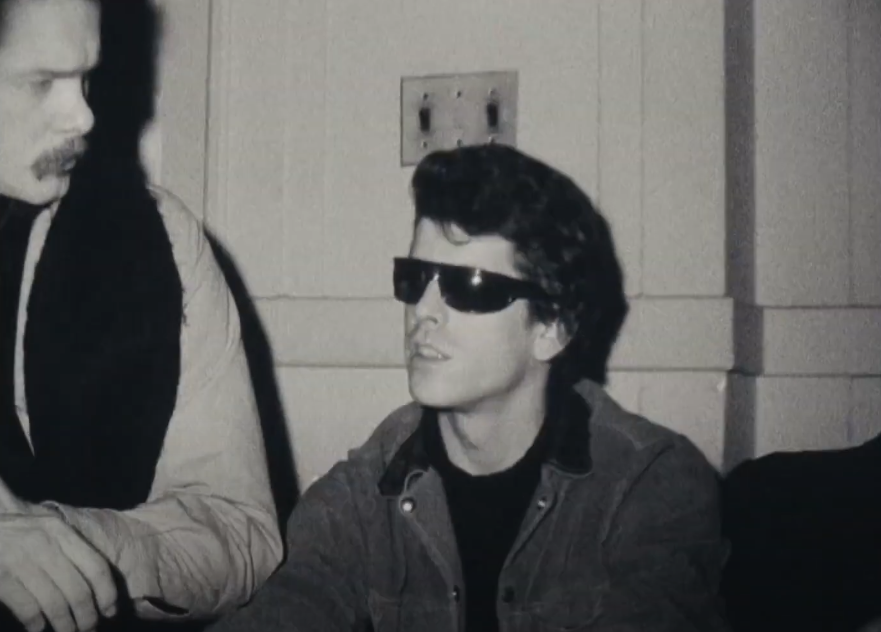 Motto Pictures, The Velvet Underground (2021)
Motto Pictures, The Velvet Underground (2021)
37. He Doubled Down On Annoying Critics
Shortly after his dismissal from the tour, Lou Reed released his next album, Metal Machine Music. When fans listened, they were left utterly shocked. A double album, it featured almost no singing and contained only modulated feedback and guitar effects. Like its predecessor, this album was also incredibly poorly received by most critics, and allegedly, thousands of copies of the album were returned to record stores by disappointed fans. But there may have been another motivation behind the record.
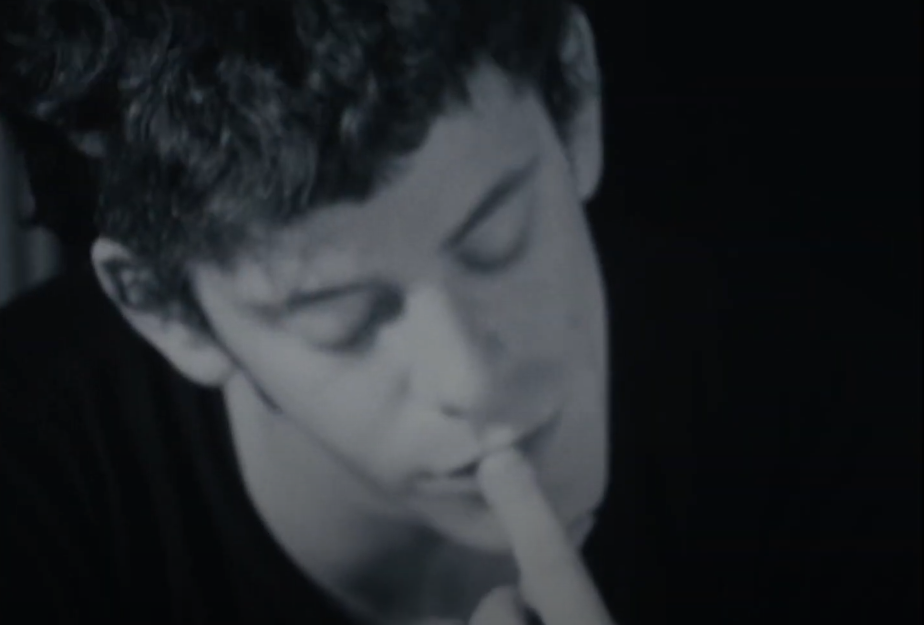 Motto Pictures, The Velvet Underground (2021)
Motto Pictures, The Velvet Underground (2021)
38. He May Have Been Joking
There are rumors that Reed made an intentionally abrasive album that had no chance of succeeding commercially so that he could get out of his record contract with RCA. Reed, for his part, has denied this and claimed the album was a genuine artistic attempt at something different.
Conversely, however, Reed was also later quoted as saying: “Anyone who gets to side four is dumber than I am”. Despite his run of poor critical reception, Reed had some genius left in him yet.
39. He Was Socially Progressive
Lou Reed released his next album early the next year, in January of 1979. Titled Coney Island Baby, Reed dedicated the record to his then-muse, a transgender woman named Rachel Humphreys with whom he had entered into a three-year relationship after the dissolution of his marriage with Kronstad.
Reed’s public relationship with a trans woman was unprecedented for the time and reflected the fluid nature of his sexuality. He was fluid in his career choices too.
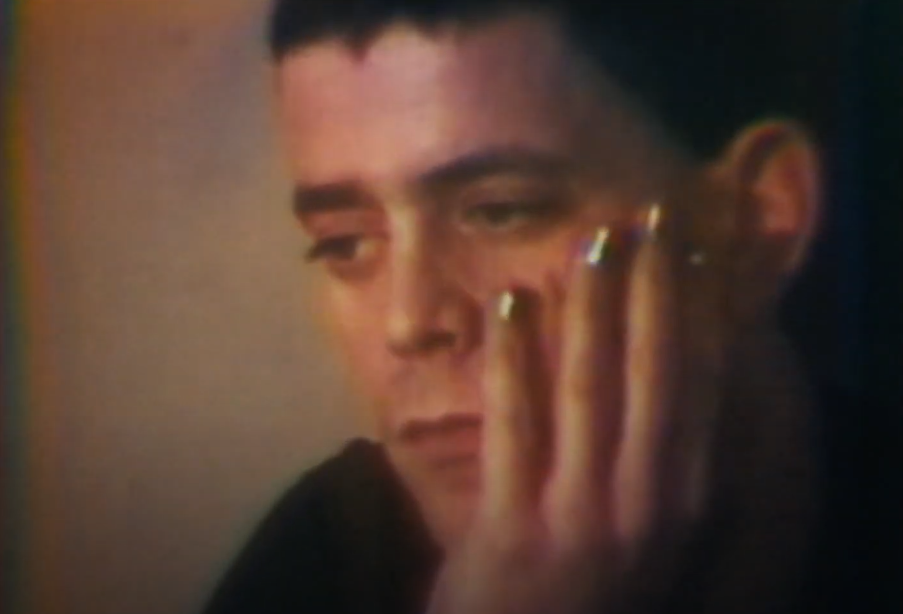 Motto Pictures, The Velvet Underground (2021)
Motto Pictures, The Velvet Underground (2021)
40. He Became A Spokesperson
By the 1980s, Lou Reed had had a run of relatively successful albums. His next move surprised many when he appeared in a commercial for Honda scooters. He also licensed some of his music for the ad. Many fans saw this as shameless “selling out,” but others pointed out that it was unsurprising from someone mentored by Andy Warhol, himself famous for his commercial art. Reed had still not repaired his relationship with Warhol, and he would be too late for any reconciliation.
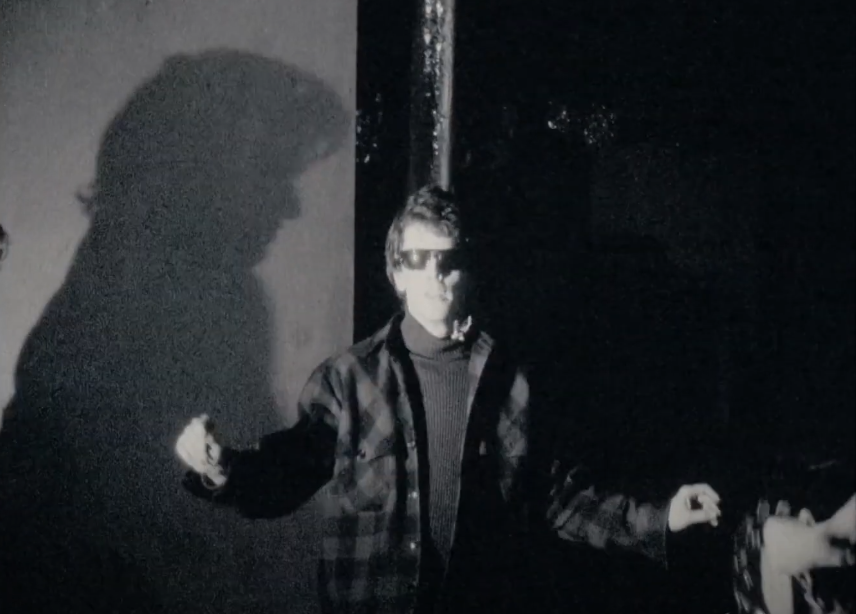 Motto Pictures, The Velvet Underground (2021)
Motto Pictures, The Velvet Underground (2021)
41. Tragedy Inspired Him To Look To The Past
Andy Warhol passed away in 1987, and Reed attended the funeral where he reunited with the members of his former band, the Velvet Underground. That’s where things took a surprising turn. The loss of their mutual friend and former manager and the emotions around their reconnection inspired the Velvet Underground to reunite in 1990 with the original lineup, minus Nico, who had passed away in 1988. It would be short-lived.
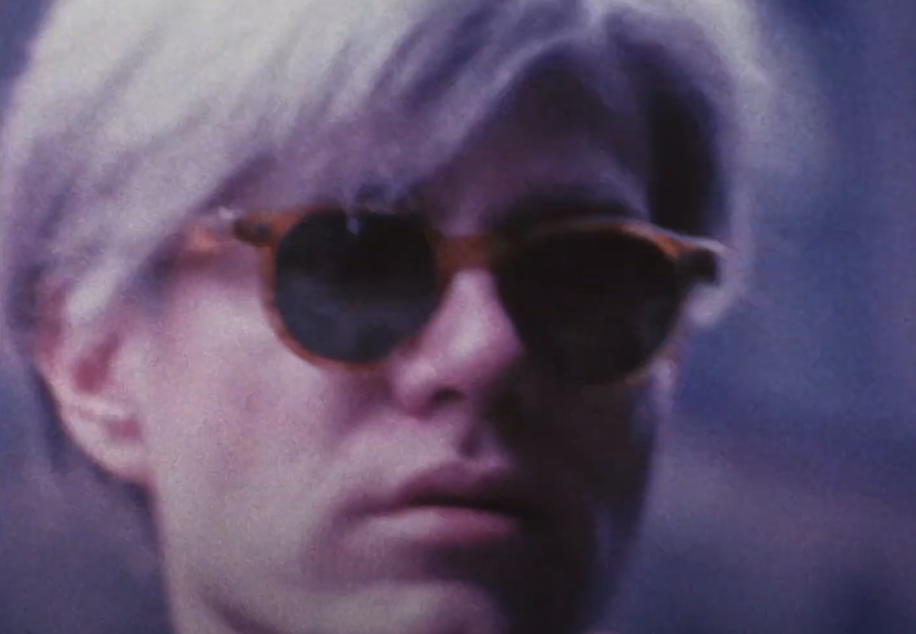 Motto Pictures, The Velvet Underground (2021)
Motto Pictures, The Velvet Underground (2021)
42. His Reunion Was Brief
The Velvet Underground roared back to life with a highly successful European tour in the summer of 1993, climaxing in an acclaimed performance at the Glastonbury Festival. Riding the high, promoters began to plan a subsequent US tour. But old grudges soon resurfaced: Lou Reed still felt that it was “his” band, not Cale’s.
A resulting dispute between the two led them to scrap the tour. It was just like old times, and the Velvets disbanded once again. That’s when Reed’s lift took another turn…
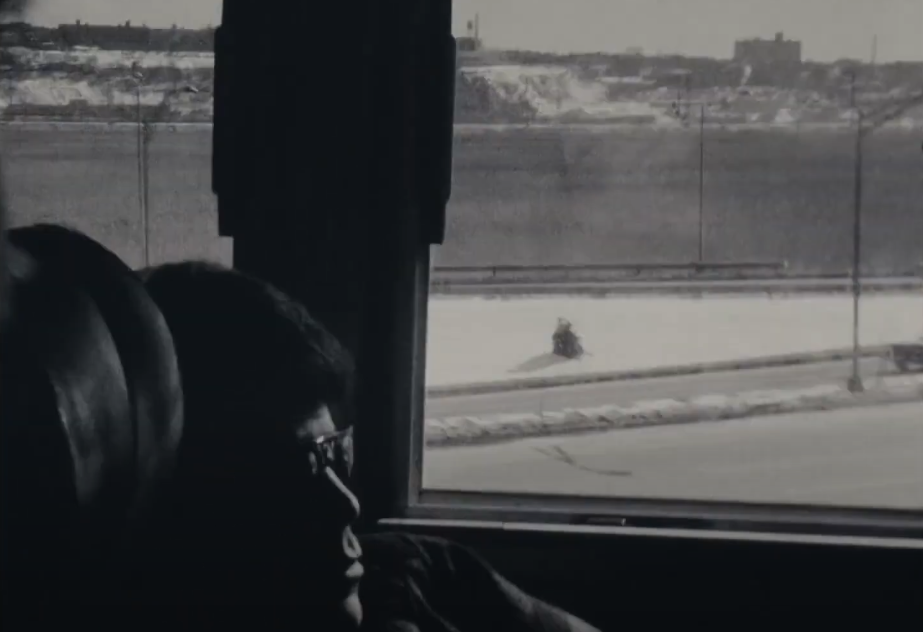 Motto Pictures, The Velvet Underground (2021)
Motto Pictures, The Velvet Underground (2021)
43. He Interviewed A President…
In 1989, the communist government of Czechoslovakia was toppled and a writer and activist named Václav Havel was elected president of the new liberal regime. Havel had commented in several interviews that he greatly admired Lou Reed as a songwriter and that the Velvet Underground’s debut album had inspired him to pursue political office. Shortly after Havel’s electoral victory, Rolling Stone approached Reed to interview the Czech president for an interview.
Reed, flattered by the consideration, enthusiastically agreed to the assignment, heading to Czechoslovakia. Maybe he should’ve stuck to his day job.
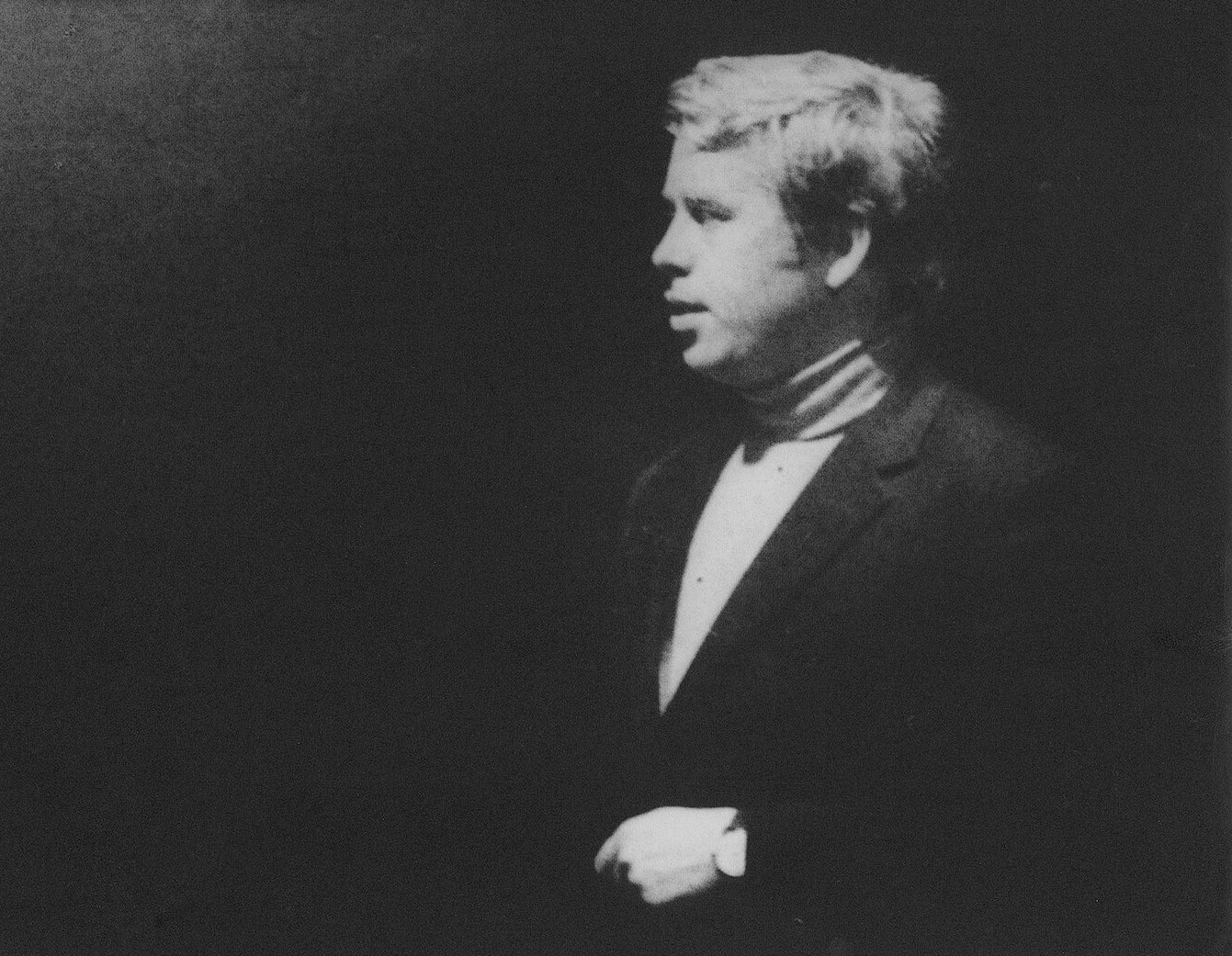 Jaroslav Krejčí, CC BY-SA 4.0, Wikimedia Commons
Jaroslav Krejčí, CC BY-SA 4.0, Wikimedia Commons
44. …And He Did A Bad Job
When the editors of Rolling Stone eventually received the transcript of the interview, they were horrified. It was clear that Reed had taken the assignment as one giant stroke of his ego. He repeatedly steered the conversation away from any political points Havel tried to make and towards himself and the significance of his music. He even distilled Havel’s points into reductive statements like “music can change the world”.
Rolling Stone declined to publish the interview, which greatly offended Reed. He was lucky he had a support system.
45. His Wife Changed His Life
Lou Reed married his third wife, fellow musician Laurie Anderson, in 2008, though the two had been a couple since 1992. Adorably, Reed was very public about his affection for his life partner. On one occasion, Reed was speaking to a journalist who had contributed to the Rock and Roll Hall of Fame’s list of 500 songs that shaped the genre.
His track “Walk on the Wild Side” had made the cut, but in a sweet gesture, he also asked the journalist if his wife’s song “O Superman” had also been included. It was one of the many ways Reed had changed in his old age.
 Bernard Gotfryd, Wikimedia Commons
Bernard Gotfryd, Wikimedia Commons
46. He Played A Holy Concert
In his later years, Lou Reed began to soften on the people he’d previously criticized. These had included journalists, critics, fellow musicians, political figures, and religious leaders. Such was his turnaround on the latter that in 2000, Reed agreed to play a concert for Pope John Paul II along with many of his musical contemporaries. The 21st century embraced him in other odd ways too.
47. He Was The Subject Of Some Pioneering Spam
In May of 2001, an email circulated to hundreds of media outlets—and it contained a shocking claim. It said that Reed had perished of an overdose. It also included statements from those close to Reed, including his wife...and purported friend-slash-former US Secretary of State Madeleine Albright. It was this strange detail that tipped people off that somethnig wasn't right.
While these types of fake stories are commonplace nowadays, this was one of the first times a fake news story like this had received such attention, giving Reed a strange pioneering credit as the subject of one of the internet’s earliest fake death hoaxes. He would have several years left in him yet, but he wouldn’t spend them all wisely.
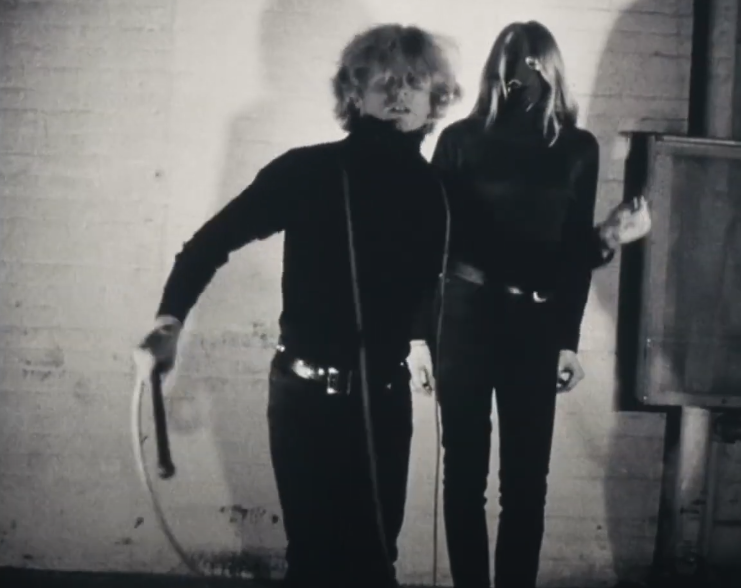 Motto Pictures, The Velvet Underground (2021)
Motto Pictures, The Velvet Underground (2021)
48. He Collaborated On An Absolute Dud
In October 2011, Lou Reed released a collaborative album with popular metal band Metallica. Entitled Lulu, the album was immediately met with widespread disdain among critics and fans alike. One reviewer summed it up thusly: “Lulu is a catastrophic failure on almost every level, a project that could quite possibly do irreparable harm to Metallica's career”.
Perhaps Reed’s physical deterioration contributed to the album’s baffling release.
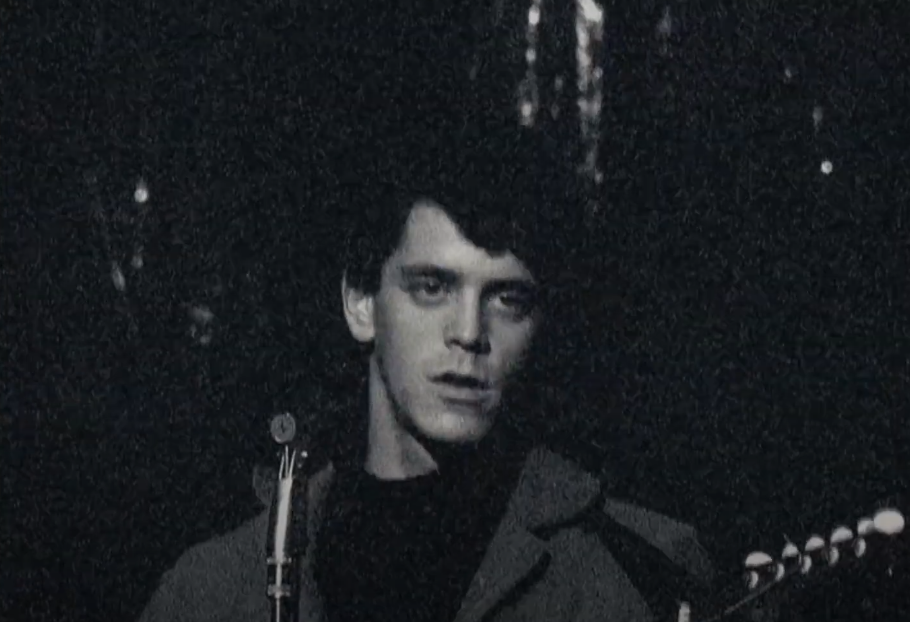 Motto Pictures, The Velvet Underground (2021)
Motto Pictures, The Velvet Underground (2021)
49. His Health Grew Worse
As the 2010s began, Lou Reed’s health began to deteriorate. His years of substance issues had taken a toll on his body and on top of that, he suffered from hepatitis and diabetes. He soon developed liver cancer and underwent an organ transplant in 2013. Commenting afterwards that he was feeling stronger than ever, fate would have other plans for Reed.
50. His Body Betrayed Him
The transplant Lou Reed had received did not take and on October 27, 2012, he succumbed to liver disease at age 71. His widow described his final days as peaceful and Reed received an astounding number of tributes from inside and outside the music industry, showing how his music and influence had touched countless lives. Some tributes took on cosmic significance.
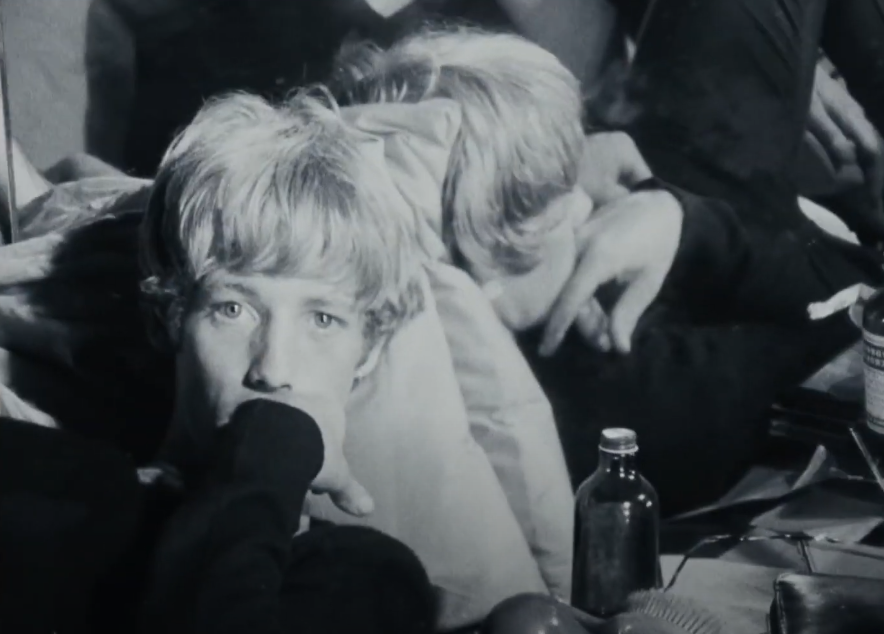 Motto Pictures, The Velvet Underground (2021)
Motto Pictures, The Velvet Underground (2021)
51. He Became An Important Namesake
Reed’s influence stretched far beyond the worlds of music and art. On June 2, 2015, an asteroid observed at the Palomar Observatory was named “Asteroid 270553 Loureed” in his honor. The scientific tributes didn’t stop there. A new species of spider (from a family of spiders known as velvet spiders that live underground) discovered in Spain was named Loureedia. But not every tribute was positive.
 Quartetto, CC BY-SA 4.0, Wikimedia Commons
Quartetto, CC BY-SA 4.0, Wikimedia Commons
52. He Got Accused Of Problematic Behavior
Since his passing, there have been some concerning allegations made against Lou Reed. One biographer alleged a history of harmful and misogynistic behavior towards women in his life. Others have reported Reed using prejudiced slurs, while others still have accused him of projecting an obnoxious public persona to sell records.
Nonetheless, grappling with Lou Reed has always meant grappling with a legacy equal parts brilliant and troubling.


